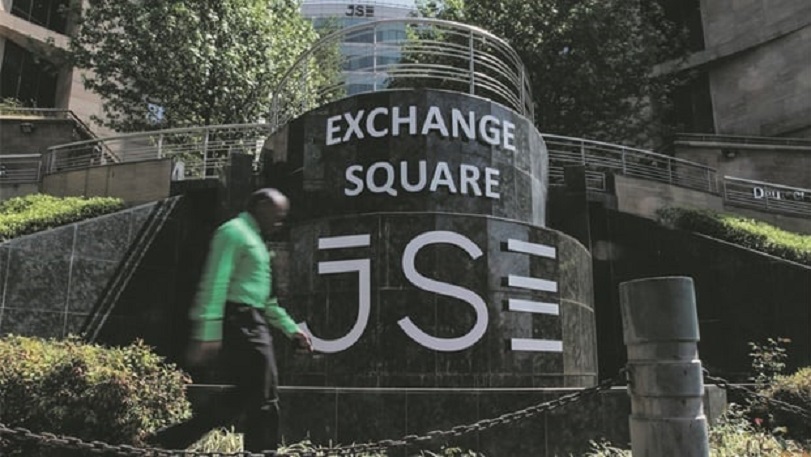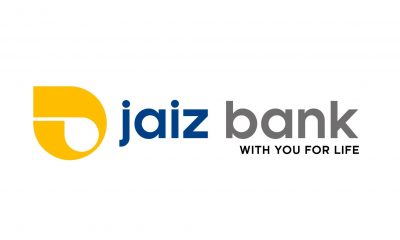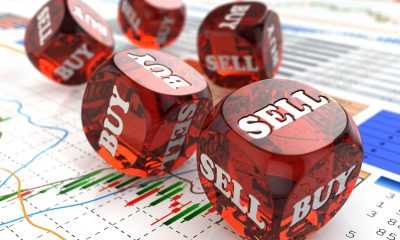Economy
Learn How to Trade With These Great Online Sources

Trading stocks on the Johannesburg Stock Exchange (JSE) can be a great way to increase your earnings and diversify your portfolio. Whether you’re a novice investor or a seasoned professional, trading stocks on the JSE can be a great way to build wealth.
With the right resources, anyone can learn how to trade on the JSE. Fortunately, there are several great online sources that can help you get started. From tutorials and webinars to stock market analysis and trading strategies, these online sources have everything you need to learn the ins and outs of trading on the JSE.
What is the Johannesburg Stock Exchange?
The JSE is the largest stock exchange in Africa, accounting for nearly 90% of South Africa’s equity market. The JSE has been operating since 1889, making it one of the oldest stock exchanges in the world.
The JSE is based in Johannesburg, South Africa and is owned by the country’s biggest financial institutions. All the major South African banks own a portion of the JSE and are responsible for listing stocks. The JSE is also regulated by the country’s central bank, the South African Reserve Bank (SARB).
In addition to stocks, the JSE also offers trading in bonds, commodities and other financial instruments. But one of the most popular and safest ways to invest is to invest in JSE top 40.
Online sources for learning how to trade on the JSE
Here are a few of the best online sources for learning how to trade on the JSE:
Forbes investing. Forbes has a section on their website called Investing that is full of great information. You can learn everything you need in order to build a good foundation before you get started as a trader.
The Economist: The Economist is a great source for all types of information about global economies, including some useful investor information that you can use to gain a better understanding of the markets you plan to invest in. It’s updated frequently, making it a great option for daily reading.
Tutorials and webinars
Tutorials and webinars are super useful and can help you learn how to trade on the JSE. You can learn how to trade stocks, get info about commodities and other financial instruments. They are also a great place to find trading strategies and tips on how to enter the market.
Here are a few of the best tutorials and webinars for trading stocks:
Lola: This tutorial is free and can provide new traders with the knowledge they need to get started with investing. It covers everything from the types of stocks to trading strategies and tools. It’s ideal for first-time traders looking to learn how to trade on the JSE.
My Personal Finance: Learn how to trade commodities, including gold, platinum and more. This channel can provide valuable insight for new traders. It can teach you the ins and outs of commodities and how to trade them successfully.
Practice accounts
While we don’t recommend trading with real money until you are confident with your strategy, a practice account is a great tool to get started. These practice accounts allow you to trade stocks with fake money and gain confidence before jumping into the real market.
They can also help you test out different trading strategies and see which one is best for you. Here is one of the best practice accounts for trading stocks on the JSE:
Trading Technologies: This practice account can help you understand the trading market and the risks associated with it. It allows you to test out different strategies and get used to trading with fake money. It’s a great way to get started with trading stocks on the JSE.
Conclusion
The Johannesburg Stock Exchange can be a great way to invest and potentially make money. It’s good to learn how to trade properly first though. After all, you will be using your own money eventually to invest, so it’s better to be safe than sorry.
With the resources above, you should have everything you need to get started trading on the JSE and potentially make some serious money. Just be sure to check all your resources regularly so that you stay informed about changes in the market as they occur. Then, you’ll be protected against any sudden news that you need to know about that could affect your holdings. Good luck!
Economy
Seven Price Gainers Boost NASD OTC Bourse by 2.19%

By Adedapo Adesanya
Seven price gainers flipped recent declines at the NASD Over-the-Counter (OTC) Securities Exchange, raising the alternative stock market by 2.19 per cent on Friday.
According to data, the market capitalisation added N51.24 billion to end N2.389 trillion compared with the previous day’s N2.338 trillion, while the NASD Unlisted Security Index (NSI) climbed 85.65 points to close at 3,994.32 points, in contrast to the 3,908.67 points it ended a day earlier.
Business Post reports that the advancers were led by MRS Oil Plc, which improved its value by N13.00 to N200.00 per share from N187.00 per share, FrieslandCampina Wamco Nigeria Plc gained N7.40 to settle at N91.55 per unit versus the previous day’s N84.15 per unit, Central Securities Clearing System (CSCS) Plc appreciated by N6.08 to N71.00 per share from N64.92 per share, Afriland Properties Plc added 66 Kobo to finish at N17.17 per unit versus N16.51 per unit, IPWA Plc rose 37 Kobo to N4.15 per share from N3.78 per share, First Trust Mortgage Bank Plc grew by 11 Kobo to N1.20 per unit from N1.09 per unit, and Food Concepts Plc went up by 10obo to N3.70 per share from N3.60 per share.
On the flip side, there were two price losers led by Geo-Fluids Plc, which depreciated by 28 Kobo to N3.32 per unit from N3.60 per unit, and Industrial and General Insurance (IGI) Plc dropped 5 Kobo to sell at 45 Kobo per share from 50 Kobo per share.
Yesterday, the volume of trades went down by 92.0 per cent to 3.7 million units from 45.8 million units, the value of transactions fell by 59.4 per cent to N84.5 million from N208.2 million, while the number of deals went up by 7.7 per cent to 42 deals from 39 deals.
CSCS Plc remained the most traded stock by value (year-to-date) with 32.6 million units exchanged for N1.9 billion, trailed by Geo-Fluids Plc with 119.6 million units valued at N470.3 million, and Resourcery Plc with 1.05 billion units traded at N408.6 million.
Resourcery Plc closed the day as the most traded stock by volume (year-to-date) with 1.05 billion units sold for N408.7 million, followed by Geo-Fluids Plc with 119.6 million units worth N470.3 million, and CSCS Plc with 32.6 million units worth N1.9 billion.
Economy
FX Demand Worries Weaken Naira to N1,346/$1 at Official Market

By Adedapo Adesanya
The Naira weakened further against the United States Dollar in the Nigerian Autonomous Foreign Exchange Market (NAFEX) on Friday, February 20, by N4.97 or 0.37 per cent to N1,346.32/$1 from the N1,341.35/$1 it was transacted on Thursday.
Heightened FX demand tilted the market toward the downside yesterday, exerting upward pressure on rates despite efforts by the Central Bank of Nigeria (CBN) to stabilise the foreign exchange market.
Also in the official market, the domestic currency depreciated against the Pound Sterling during the session by N9.39 to sell for N1,815.25/£1 versus the previous day’s N1,805.86/£1, and lost N7.33 against the Euro to close at N1,584.62/€1 compared with the preceding session’s N1,577.29/€1.
The story was not different for the Nigerian Naira at the GTBank FX desk, where it depleted against the Dollar by N7 on Friday to quote at N1,356/$1 versus the N1,349/$1 it was sold a day earlier, but remained unchanged in the black market at N1,370/$1.
It was observed that risky sentiment among Foreign Portfolio Investors (FPIs) contributed to the FX market, amid fears of hot money flight due to capital gains tax and other factors.
As for the cryptocurrency market, it was mostly green yesterday in reaction to a Supreme Court verdict dismissing a fresh 10 per cent global levy by President Donald Trump.
The apex court on Friday described Mr Trump’s global tariff rollout as illegal. The decision did not clarify what should happen to tariff revenue already collected, and it doesn’t necessarily spell the end of the trade agenda, with multiple legal and executive avenues still available.
Litecoin (LTC) grew 2.7 per cent to $55.00, Cardano (ADA) appreciated 2.6 per cent to trade at $0.2815, Binance Coin (BNB) expanded by 2.6 per cent to $627.19, Dogecoin (DOGE) recouped 1.3 per cent to quote at $0.1, Ripple (XRP) jumped 0.7 per cent to $1.43, Solana (SOL) improved by 0.5 per cent to $84.15, and Ethereum (ETH) soared 0.1 per cent to $1,962.78.
However, Bitcoin (BTC) lost 0.2 per cent to sell for $67,850.49, while the US Dollar Tether (USDT) and the US Dollar Coin (USDC) traded flat at $1.00 each.
Economy
Fidson, Jaiz Bank, Others Keep NGX in Green Territory

By Dipo Olowookere
A further 0.99 per cent was gained by the Nigerian Exchange (NGX) Limited on Friday after a positive market breadth index supported by 53 price gainers, which outweighed 23 price losers, representing bullish investor sentiment.
During the trading day, the trio of Jaiz Bank, Fidson, and NPF Microfinance Bank chalked up 10.00 per cent each to sell for N11.00, N86.90, and N6.27, respectively, while Deap Capital appreciated by 9.96 per cent to N7.62, and Mutual Benefits increased by 9.94 per cent to N5.42.
Conversely, Secure Electronic Technology shed 10.00 per cent to trade at N1.62, Sovereign Trust Insurance slipped by 9.73 per cent to N2.32, Ellah Lakes declined by 7.91 per cent to N12.80, International Energy Insurance retreated by 5.56 per cent to N3.40, and ABC Transport moderated by 5.26 per cent to N9.00.
Data from Customs Street revealed that the insurance counter was up by 2.52 per cent, the industrial goods sector grew by 2.28 per cent, the banking space expanded by 1.43 per cent, the consumer goods index gained 1.23 per cent, and the energy industry rose by 0.05 per cent.
As a result, the All-Share Index (ASI) went up by 1,916.20 points to 194,989.77 points from 193,073.57 points, and the market capitalisation moved up by N1.230 trillion to N125.164 trillion from Thursday’s N123.934 trillion.
Yesterday, investors traded 820.5 million stocks valued at N28.3 billion in 63,507 deals compared with the 898.5 million stocks worth N38.5 billion executed in 61,953 deals, showing a jump in the number of deals by 2.51 per cent, and a shortfall in the trading volume and value by 8.68 per cent and 26.49 per cent apiece.
Closing the session as the most active equity was Mutual Benefits with 79.0 million units worth N427.1 million, Zenith Bank traded 44.0 million units valued at N3.8 billion, Chams exchanged 43.9 million units for N182.0 million, AIICO Insurance transacted 42.4 million units valued at N179.8 million, and Veritas Kapital sold 36.0 million units worth N90.6 million.
-

 Feature/OPED6 years ago
Feature/OPED6 years agoDavos was Different this year
-
Travel/Tourism10 years ago
Lagos Seals Western Lodge Hotel In Ikorodu
-

 Showbiz3 years ago
Showbiz3 years agoEstranged Lover Releases Videos of Empress Njamah Bathing
-

 Banking8 years ago
Banking8 years agoSort Codes of GTBank Branches in Nigeria
-

 Economy3 years ago
Economy3 years agoSubsidy Removal: CNG at N130 Per Litre Cheaper Than Petrol—IPMAN
-

 Banking3 years ago
Banking3 years agoSort Codes of UBA Branches in Nigeria
-

 Banking3 years ago
Banking3 years agoFirst Bank Announces Planned Downtime
-

 Sports3 years ago
Sports3 years agoHighest Paid Nigerian Footballer – How Much Do Nigerian Footballers Earn





















